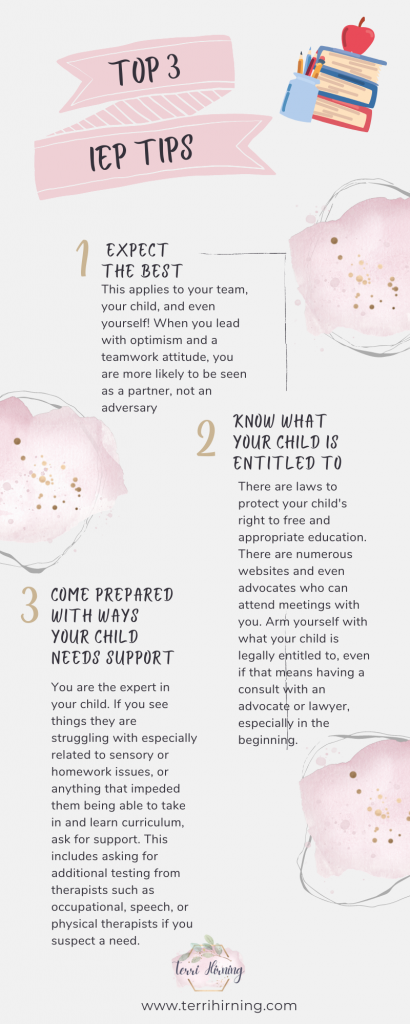When we started this process just before my son’s 3rd birthday, I couldn’t possibly imagine this day. His final IEP meeting.
It was an emotional day for sure.
The team discussed ways they could most effectively support him until his graduation in a few months. This was status quo of what we experienced walking in the doors of his high school 4 years ago.
From a homeschooled child needing a partial day to now a confident high school senior, this team has given him exactly what he has needed to be successful.
We also found out his case manager is retiring after this year, what a loss for our school because she has been so influential in addressing any issue that has come up, so lovingly hand-selected his teachers based on his personality and that of the teacher, looking for a good fit. She is who we all went to when we needed a shift or additional support.
Over the past 15 years, I’ve heard many, many (many) stories of other parents. I know how lucky we’ve been and I have some tips for new parents looking back now.

As an autism mom, I felt like I was constantly reminded about what my son was not able to do, how far behind he was, and the goals he was not meeting. And to an extent, that is just a part of the territory. But, coming from the perspective of the ways our children can be supported to be successful, to feel successful, is critical.
There were IEP meetings where I wanted to cry. I wondered what his future was going to look like. But then I realized that I needed to take control of my son’s educational future and see the members of our educational team as just that, my team. Their job was to assess and determine ways he could be successful in school. Some years that was harder than others.
Some accommodations to consider (of course based on age/ability):
- Sensory breaks
- Functional tools for success including pencil grips, wiggle seats, weighted vests, or even communication devices for nonverbal students
- Longer time to work on assignments and tests
- Reading instructions aloud
- Testing in quiet environment
- Reduction in number of questions on tests
- Quiz correction opportunities
- 1:1 support
- Reduced class load or length of day
- Having access to notes during tests
One of my most important pieces of advice is to know that at the end of the day, you are the team leader. As such, the responsibility is with you to manage your child’s team. There have been times when I have had to “fire” team members who discounted what my son was capable of, spoke down to, excluded, or discriminated against him. It was critical for me to have those around him who saw his potential and were committed to helping him realize it. Anything less is unacceptable. Don’t be afraid to advocate for what your child needs.
Our children are amazing and have such gifts, and the people who love and support them in becoming their richest, fullest potential are angels on this earth.
We concluded the IEP for the final time and took a moment to soak in how far he has come. From a non-verbal, sensory overwhelmed preschooler to a confident, competent young man who is ready for the next step in his educational journey, college.


